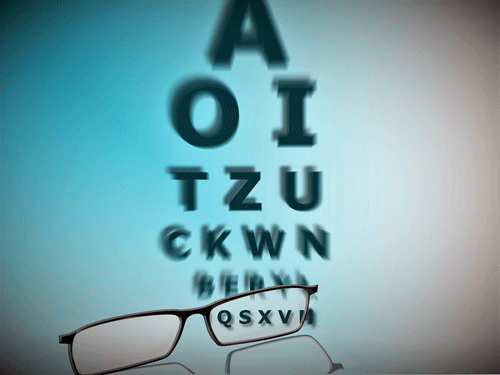Online vision tests are a topic of conversation I’ve had with several colleagues recently. Is it legal to fill those prescriptions? Should we fill those prescriptions at all? What happens when the patient can’t see? Can we tell the difference between a prescription from an outside doctor and one signed off by an online doctor?
Telemedicine may be putting opticians in a difficult spot. Like it or not, online vision tests are here, and if it hasn’t happened already, patients may walk into your office, show you a prescription on their phone, and expect you to make a pair of glasses for them. I fear that saying no will get your practice smeared all over social media. At the same time, saying yes leaves you holding the bag when the patient can’t see.
 The first question is whether it is legal to fill those prescriptions in your state. It’s likely that many state legislatures haven’t begun to address the issue, although it’s important to note that already there is ongoing litigation in some states. I checked my state’s regulations (Connecticut) and the requirements for a valid eyeglass prescription are that the optician must have a written copy with date, parameters and doctor’s signature. A prescription printed from online would have all of that. I found nothing about prescriptions via iPhone.
The first question is whether it is legal to fill those prescriptions in your state. It’s likely that many state legislatures haven’t begun to address the issue, although it’s important to note that already there is ongoing litigation in some states. I checked my state’s regulations (Connecticut) and the requirements for a valid eyeglass prescription are that the optician must have a written copy with date, parameters and doctor’s signature. A prescription printed from online would have all of that. I found nothing about prescriptions via iPhone. Then there’s accuracy. I tried a couple of free online vision tests, and I must admit I couldn’t resist the urge to cheat. Oh yeah, if I move just a little closer to the screen, I can see the smallest line. Cover one eye at a time? Well, I walk around with both of them open, so why bother? I know I was only kidding myself, but isn’t it a natural instinct to want to ‘get the answers right?’ How many folks who take the online tests cheat, even a little?
Most important, of course, is the issue of eye and vision health. In spite of disclaimers on the online websites, how many people think an eye exam with their doctor is only to get a prescription? At least one online vision test company received a warning from the FDA to “cease activities that result in the misbranding or adulteration of its test as an "eye examination" mobile medical app device.”
To fill or not to fill? There isn’t an answer that suits everyone. Our profession has to move with the times and technology, but are we part of the liability if an online prescription goes wrong? Then again, it seems likely that people who are getting online vision tests are also getting their glasses online, leaving us out of the loop altogether – until the patient has a problem, that is. My recommendation is to do your homework. First see if it’s permitted in your state. Then consider just how many of those online prescriptions you’re seeing. Whether you fill them or not, it’s an opportunity to educate patients about lens prescriptions versus vision health. If you practice with a doctor or have a good relationship with someone local, have a conversation about how best to approach the issue.
You can get great information on educating patients about online eyewear with our CE, The Power and Politics of the PD at www.2020mag.com/ce.













